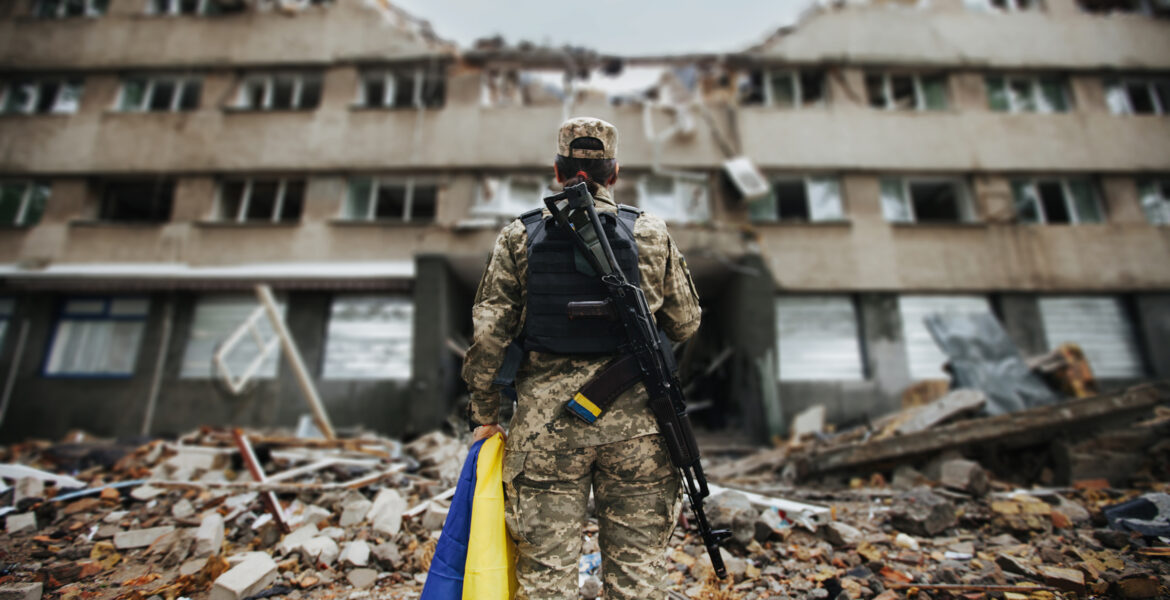The war in Ukraine is not only about territory. It is a clash of two ideas: diversity freely chosen versus uniformity imposed. Europe’s fate hangs in the balance, writes DR DOUGLAS RASBASH*
The motto of the European Union is “United in Diversity.” It speaks to a Europe that, after centuries of bloody wars, chose to build peace not through conquest but through cooperation. Twenty-seven countries, 24 official languages, countless dialects and cultures — yet they share a single market, a single parliament, and a common destiny.
The Russian Federation tells a different story. Ten times larger than the EU by land mass, stretching eleven time zones, it enforces one official language: Russian. Its power rests not on voluntary belonging but on uniformity, and often, on coercion.
The war in Ukraine is not only about territory. It is a clash of these two ideas: diversity freely chosen versus uniformity imposed. Europe’s fate hangs in the balance.
An African Lens
To many Africans, this feels like a distant debate between distant powers. But in truth, it is deeply African. We too live with the question of whether our strength lies in embracing difference or suppressing it. Africa is the most diverse continent on earth. Over 2,000 languages are spoken from Cape to Cairo. We carry faiths old and new, customs local and global.
Every kgotla, every palaver tree, every indaba has taught us that harmony comes not by silencing difference but by giving it space. Our philosophy of ubuntu — “I am because we are” — expresses the same wisdom as the EU’s motto. It says: our humanity is strengthened by connection, not erased by it.
History’s Curiosities
History could have been different. Were it not for the barrier of the Sahara, the Moors might have colonised Africa instead of Iberia. In the Middle Ages, Moorish learning, architecture, and governance flourished in Spain and Portugal while much of sub-Saharan Africa remained shielded by the desert. Meanwhile, Slavic Russia grew outward like a spreading ink stain across the steppe. From Muscovy to Siberia to the Pacific, its strength came from swallowing difference into uniformity. One landmass, one tongue, one orthodoxy.
The irony is striking: Africa and Russia are similar in size — both continental giants. But where Africa has remained diverse, Russia has pursued sameness. Africa’s unity has always been fragile but organic; Russia’s unity has always been strong but brittle.
Queues at Brussels, Not Moscow
This difference explains why countries queue up to join the EU but not Russia. From the Balkans to the Baltics, nations see Brussels as a place where they can belong without losing themselves. Their languages are safeguarded, their parliaments preserved, their local pride intact.
No such line forms outside the Kremlin. For Russia, joining means absorbing. It is empire, not union. The war in Ukraine is the starkest evidence. In occupied territories, Ukra language is illegal, the hryvna has been replaced by the ruble, schools teach Russian history and local government is now Russian. Ukrainians have chosen the path of diversity and voluntary integration with Europe, and Russia has answered with tanks.
Lessons for Africa
Africans understand exactly what it happening to Ukrainians beyond the Dnipro River. Africa knows both paths. Colonial powers tried to impose uniformity: one language, one administration, one law. The scars of that uniformity remain in borders that slice through ethnic groups, in school systems that downgraded local languages, in economies shaped for export not self-sufficiency.
But Africa’s successes have come when diversity is recognised as strength: Botswana’s tradition of consensus politics; South Africa’s rainbow nation ideal; Ghana’s pan-African spirit; Tanzania’s ujamaa, binding people into familyhood without erasing who they are.
Our own African Union was born out of that conviction. Like the EU, it says we can integrate without assimilation. The AfCFTA, our continental free trade area, is another step: Nigerians trading with Kenyans, Batswana with Ethiopians, while all remain themselves.
The Baobab Lesson
The baobab tree teaches us something too. It grows enormous, wide and enduring, but only because its roots spread in many directions, drinking from many sources. A baobab with a single root would topple. In the same way, Africa’s strength is its many roots — languages, cultures, traditions — feeding one canopy. Russia has chosen to prune away difference. Africa cannot afford that mistake. Our strength is baobab strength — wide-rooted, deeply anchored, sheltering all who gather beneath.
The Present Reminder
As we watch the war in Ukraine, we should remember that the struggle is not theirs alone. It is part of a global contest between two visions: voluntary diversity and enforced uniformity.
Ukraine fights for the right to choose its family — to belong to a union of nations that respects who they are. Russia fights to deny that choice. Africa, too, must constantly choose: do we build a union people are drawn to, or do we slip into the traps of imposed sameness?
Toward an African Future
The future of our continent depends on leaning into diversity. It means teaching our children in their mother tongues as well as in English or French. It means building trade systems that celebrate local strengths, not force identical models. It means making the African Union magnetic so young Africans feel it belongs to them.
If Europe, scarred by centuries of war, could build unity in diversity, then Africa — which has lived diversity since time immemorial — can build it more naturally still. For Europe, “strength in diversity” is a hard-won innovation. For Africa, it is ancient inheritance. It flows through Ubuntu, ujamaa, and the councils under the mowana tree.
Africa’s Inheritance
It lives in the music that blends drums from one people with flutes from another. It is the wisdom that the Sahara could not bury and empire could not erase. Africa is not Russia. We do not seek strength in uniformity. We seek it in diversity. And if we remain true to that ideology, Africa’s unity will be not only stronger than empire but more enduring.

